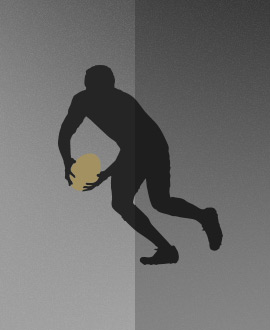

Time and circumstances sometimes count against footballers making a more lasting impression on the club for which they played.
A century on, it’s impossible to know if those were the reasons why Arthur Whitling’s tally of league games for Collingwood never went beyond the single match he played in Round 3, 1915.
There was so much happening in the world at the time that young men were heading off to war more frequently than they were playing football.
It was May 8, 1915, and news of the Gallipoli landings from 13 days earlier had only recently filtered back to Australia. Sadly, the news was also coming through about the appalling number of casualties among the young Australians who had stormed the beaches and scrapped their way up the treacherous terrain.
Perhaps those events might have had something to do with Whitling’s fleeting time at Victoria Park, and why just a few months after that one match, he chose to enlist to serve his country.
He had been born in Albury, on June 5, 1892, in the same year that Collingwood played its inaugural season in the VFA. But by the time he was set to mark his mark on football, he was living in East Brunswick, and working in the inner-suburban boot trade. Playing with Fitzroy Imperials, he came under the attention of Magpie scouts with some solid form in the trial matches leading into the 1915 season, playing mostly at half-back.
He was 22 when he ran out against St Kilda, at the Junction Oval. The Football Record detailed: “Collingwood will give a trial to Whitling, of Fitzroy Juniors. He takes (Wally) Raleigh’s place.”
The Magpies trailed the Saints early in the game, but eventually got on top, and would go on to win by 28 points.
Whitling would not hold his position the following week against Melbourne, making way for Raleigh, and that would be the end of his time in a senior black and white jumper.
Besides, he had other things to do. Within two months of his VFL debut, he had enlisted as part of the 11th reinforcements of the 6th Battalion, and was in training to head overseas to the war.
He was single, listed his sister as his next of kin, and knew that his football career had been put on hold for some time to come.
Whitling sailed off to war aboard the Nestor on October 11, 1915 – not long after Collingwood had lost to Carlton in the Grand Final – and headed to Egypt for further training. At the time he thought he was preparing to go to Gallipoli, but just before Christmas of that year, the Australians evacuated the peninsula and headed back to the sands of the desert.
Instead, most of the AIF moved to France, and it would be there that Whitling and the Australians would see action on the Western Front. In July of 1916 he was one of three stretcher bearers recommended for commendation by their commanding officer after a series of operations in Pozieres. The recommendation read, in part:
"These men did magnificent work in attending to and removing the wounded. They worked continuously for about 40 hours between the front trenches and the aid post, which was about a mile back. The whole time the trenches were subjected to an intense bombardment by heavy guns and also under rifle and machine gun fire, while a continuous and heavy barrage was maintained over the ground between the front line and the aid post. By their untiring devotion to duty, these men left the trenches clear of wounded, and thus greatly assisted the company commander in keeping up the morale and high spirits of the company."
Despite facing such horrific scenarios, in the end it would be illness – not the enemy – that would cut short Arthur's time at the front, and ultimately his time in uniform.
In early 1917, he developed pleurisy and pneumonia. At one stage his sister was told he was “dangerously ill” and there were fears he might not survive. He would be sent to England in an effort to bring him back to health again, and he spent time in several hospitals, including Weymouth Military Hospital.
Ultimately, though, the army came to the conclusion that his health issues meant he was no longer fit for active service, and he boarded a ship back to Australia in late September 1917. He arrived back home in November, and was discharged from his service on Boxing Day, 1917, and spent the final year of the war recuperating.
His army career, like his VFL career, was over. But he recovered, and lived until the age of 74, dying on January 8, 1967 – 50 years to the month since the illness that almost claimed him.
- Glenn McFarlane
CFC Career Stats
| Season played | Games | Goals | Finals | Win % |
|---|---|---|---|---|
| 1915 | 1 | 0 | 0 | 100.0% |
CFC Season by Season Stats
| Season | GP | GL | B | K | H | T | D | Guernsey No. | ||
|---|---|---|---|---|---|---|---|---|---|---|






